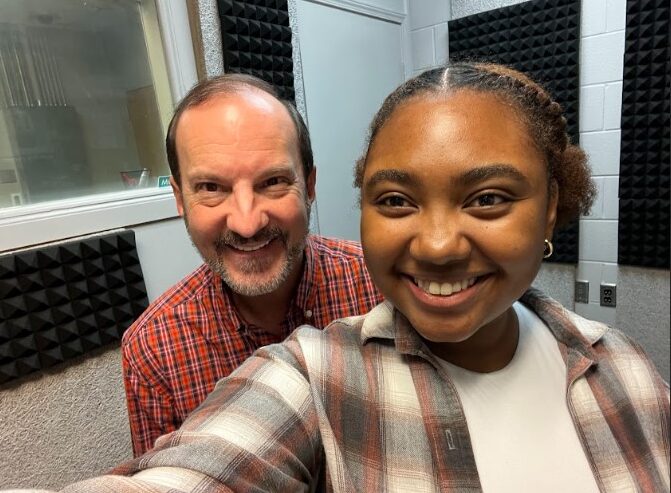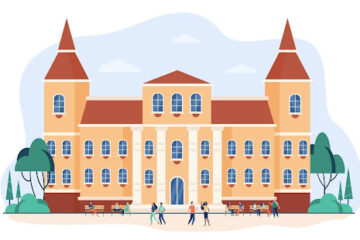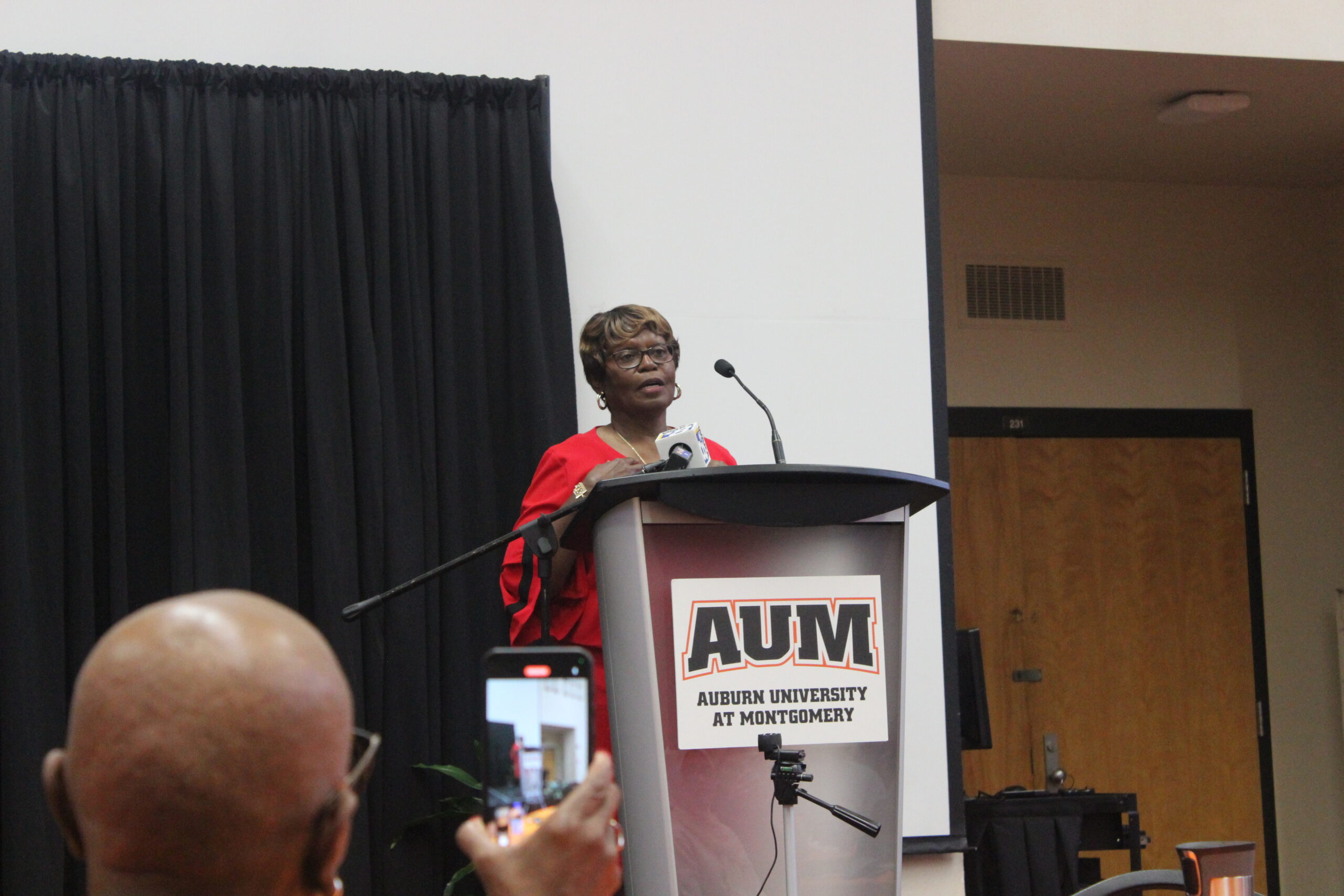By: Christa Burns
In the early 1950s, shortly after the Korean War, an Alabama veteran who was blinded by a grenade explosion visited a river in Mississippi. While there, he noticed a couple of teenage girls swimming who suddenly began crying out for help. Despite being the only person on shore and facing his own blindness, he jumped into the water and swam to their rescue. He ultimately succeeded in saving the girls and was later honored with a Carnegie Hero Award for his act of heroism.
One Auburn University at Montgomery history professor researches these heroic stories, which exemplify that even significant physical limitations cannot diminish the spirit of a true hero. Keith Krawczynski, a history professor in AUM’s History and Foreign Language Department, recently shared his research about the prestigious Carnegie Hero Award. Krawczynski, who has been teaching at AUM for more than 20 years, said he aims to highlight past events to shed light on the future.

This research topic of heroism came about for Krawczynski during the 2020 pandemic. When asked how he became fascinated with the Carnegie Hero Award, he said he accidentally came across it. “It was by accident and desperation.” He said in the early months of COVID-19, everything shut down, including museums, archives and libraries; therefore, he couldn’t do research. “So, all my research came to a stop. But that didn’t mean I should stop doing my research. I have to publish. And so, I was racking my brain. What can I do? What research can I do online? And just out of the blue, the Carnegie hero medal popped into my head,” Krawczynski added.
According to the Carnegie Hero website, the Carnegie Hero Award was named after Andrew Carnegie, a local Pittsburgh steelmaker, who realized the importance of heroes who risk their lives for the betterment of others. The Carnegie Hero Fund officially started in 1904 and has since gained national attention. The hero medal has had 10,458 recipients. Alabama was awarded 136 of those medals. Krawczynski speaks a little about obtaining the medal “It’s a rather rigorous process.” He shares that The Carnegie Hero Commission has investigators called hero hunters who seek acts of heroism. He said first you must be nominated and only about 10% of the nominees receive the Carnegie Hero award. “You really have to put your life on the line to receive one of these distinguished awards,” he said.
The concept of the hero was derived from the ancient Greeks, who defined a hero as a mortal who has done something far beyond what humans are capable of, according to an article titled ‘Why are Heroes Important written by Scott LaBarge and published by Santa Clara University in 2000. LaBarge says that “but they (heroes) were always extraordinary; to be a hero was to expand people’s sense of what was possible for a human being. “In today’s society heroism directly correlates with idolization. A hero is seen as someone to look up to because of something noble they have done. LaBarge writes that we need heroes because they help define the limits of our aspirations. “We largely define our ideals by the heroes we choose and our ideals — things like courage, honor and justice — largely define us. Our heroes are symbols for us of all the qualities we would like to possess and all the ambitions we would like to satisfy,” LaBarge wrote.
Krawczynski surveyed his students about what being a hero meant to them.
“While you were conducting your research, was there anything that surprised you? Any statistics or data?” I asked.
“Students seem to have a really good grasp of what it means to be a hero. Some of the character traits about needing courage, wisdom, morality, hope and what heroism and heroes can do for us. It gives me hope for the future, because the students are our future, and it seems like the youth today are hungry for heroes. They want heroes. They want moral exemplars, somebody to look up to, somebody to help give guidance for their life.”
Nowadays, the media can be very negative, only capturing the horrific and dramatic stories that get the most attention. The saying “if it bleeds, it leads” shows the impact of negative information and what gains the attention of its readers. Krawczynski says that his research on heroism has allowed him to see the bright spots in the media. “I’m really enjoying this project on heroism. It is an antidote to the negativity that we’re bombarded with. We all need heroes to inspire us and to give us a brighter view of humanity. The world is filled with villains. We need heroes.”
Krawczynski is writing a book and an article about his research on the Alabama Carnegie Hero Award recipients. The article is set to be published by the beginning of next year. While writing and researching, he continues teaching History at AUM. Krawczynski says that his research has affected his teachings throughout the years. He wrote multiple books on his research of early America, including a biography on the American Revolution and a book on daily colonial life in America. This research has been used during his lectures. “My research has helped to shape how I approach that topic and how I teach it to students. I want to try to use my role as a teacher to inspire students to go out and make the most out of their life, to go out and make a difference, a positive difference in their community, because the students are the future, and I want them to create a better future for themselves and the next generation. Liberation. And I think this study of heroism can inspire students to realize their full potential and to be more civic-minded.”
In January of 2019, Krawczynski was interviewed by Nick Thomas with Montgomery Independent. Thomas wrote that Krawczynski was one of the few faculty at Auburn University at Montgomery to receive both the university’s Distinguished Research Award and Distinguished Teaching Award. Krawczynski, in that interview from 2019, said “I want people to learn from the past and to think about those values, ideals, policies and institutions that have helped shape our society in both positive and negative ways and how we can use that understanding to make society better both for current and future generations. Otherwise, why study the past?”
Krawczynski gives students one piece of advice to leave them with. He said first to reach for the stars to have goals and strive for those goals. Second of all, try to find meaning in life. Try to find out what’s meaningful to you. “That’ll give your life much more purpose, some focus. It’ll give you some sense of hope and connection with the community, connection with humanity. So, find meaning in your life and pursue that.”



